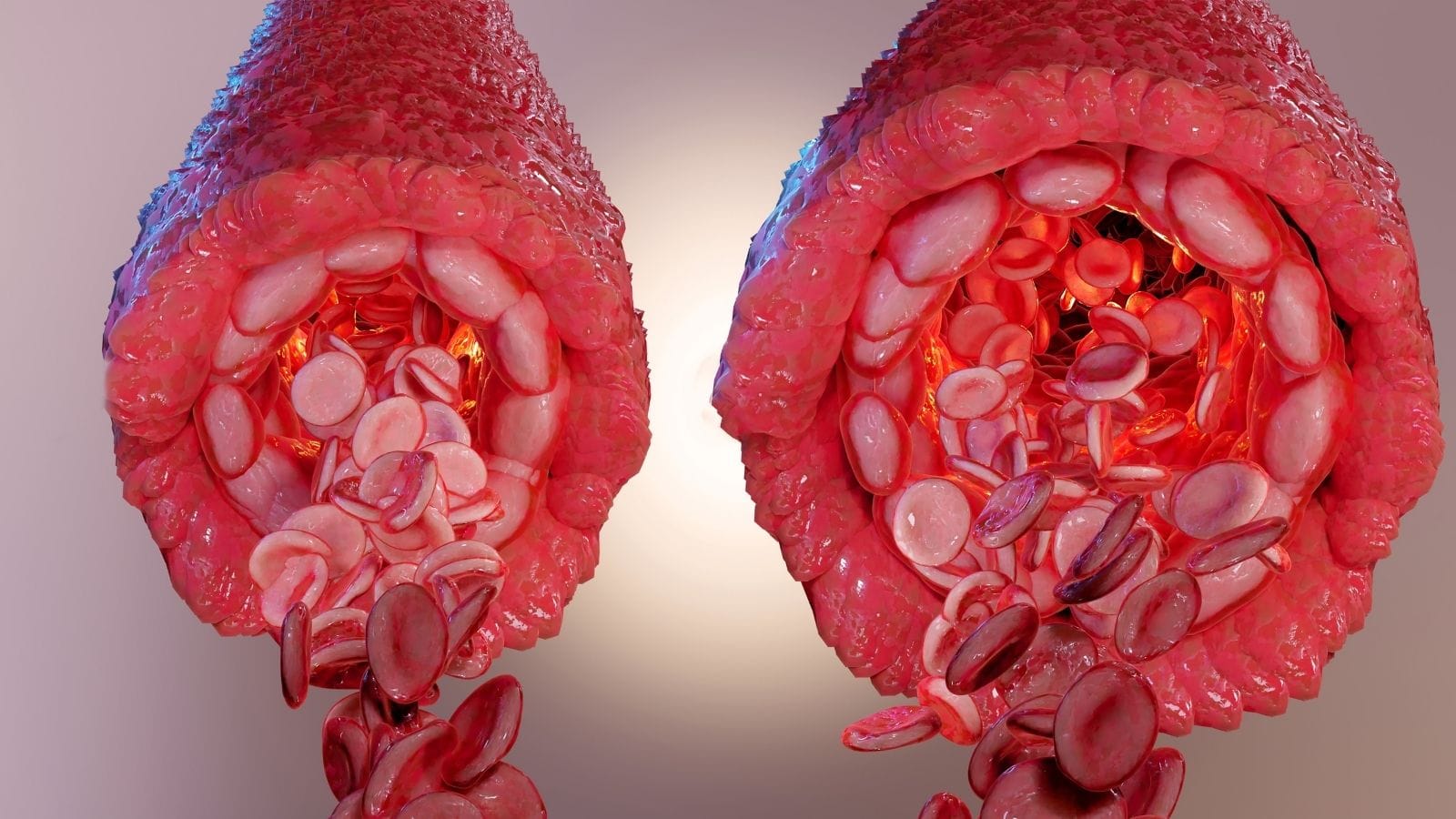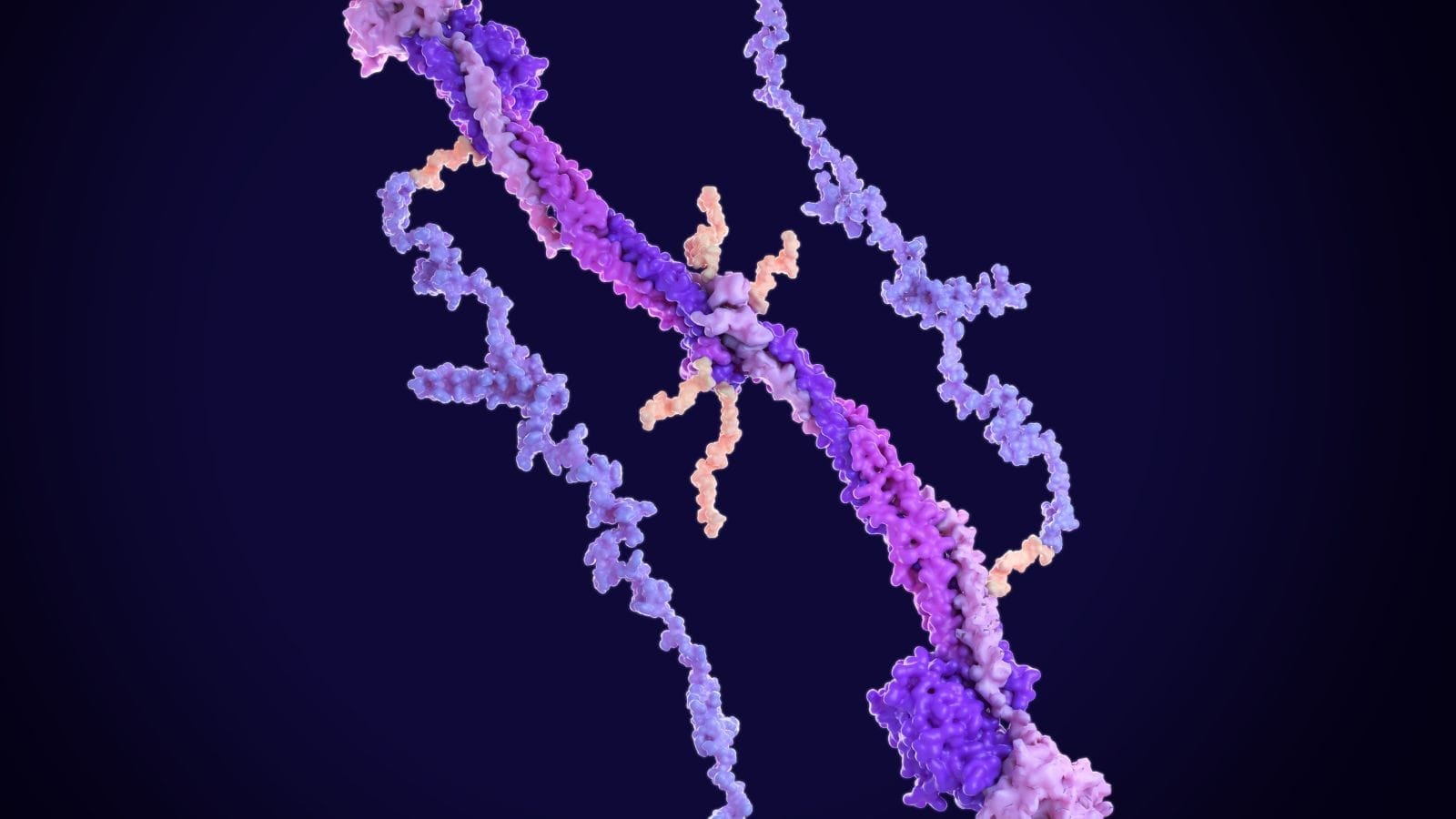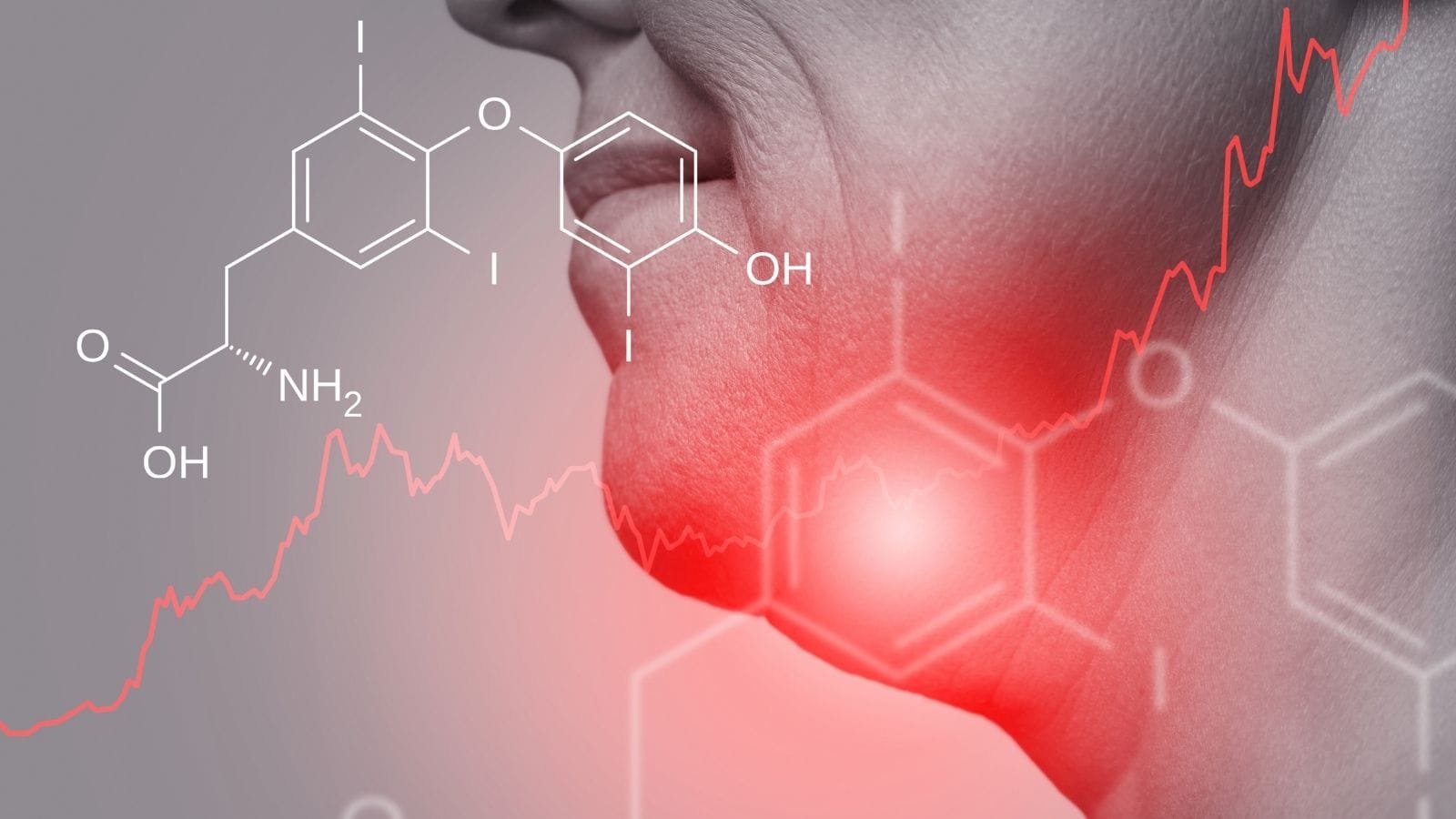Hypothyroidism is a condition where the thyroid gland produces insufficient thyroid hormones. This leads to a slowdown in metabolism and affects multiple organ systems.
Symptoms include fatigue, weight gain, constipation, dry skin, hair loss, and sensitivity to cold. Severe cases may cause bradycardia, depression, or myxedema.
Diagnosis is made through blood tests measuring TSH and free T4 levels. Early detection ensures effective management and prevents complications.
Treatment involves lifelong thyroid hormone replacement therapy. Regular follow-up is required to adjust dosage and maintain metabolic balance.
| Symptoms | – Fatigue – Weight gain – Cold intolerance – Constipation – Dry skin – Hair loss – Depression – Muscle weakness – Slow heart rate (bradycardia) – Difficulty concentrating (brain fog) |
| Causes | – Hashimoto’s thyroiditis (autoimmune disease) – Thyroid surgery – Radiation therapy – Congenital thyroid problems – Certain medications (e.g., lithium, amiodarone) |
| Risk Factors | – Being female – Age 60 and above – Family history of thyroid disease – Autoimmune diseases (e.g., type 1 diabetes) – Postpartum period – Living in iodine-deficient regions |
| Diagnostic Methods | – TSH test (Thyroid Stimulating Hormone level) – Free T4 test – Anti-TPO and Anti-TG antibodies – Thyroid ultrasound (when necessary) |
| Treatment Options | – Levothyroxine (synthetic thyroid hormone) – Regular blood tests to monitor hormone levels – Diet and lifestyle changes (for example, iodine and selenium-rich nutrition) |

Prof. Dr. Özgür KILIÇKESMEZ
Interventional Radiology / Interventional Neuroradiology
Prof. Dr. Kılıçkesmez holds the Turkish Radiology Competency Certificate, the Turkish Interventional Radiology Competency Certificate, Stroke Treatment Certification, and the European Board of Interventional Radiology (EBIR). In his academic career, he won the Siemens Radiology First Prize in 2008.
What is Hypothyroidism?
Hypothyroidism is a condition in which the thyroid gland’s secretion of thyroid hormones (mainly T4 and T3) is insufficient. The thyroid gland is a small but highly functional organ located in the front part of the neck, just below the larynx. T4 (thyroxine) and T3 (triiodothyronine) hormones regulate the body’s metabolic rate. A decrease in the secretion of these hormones causes the metabolism to slow down.
Think of the thyroid gland as the thermostat in your home. If the thermostat does not keep your temperature at the right level, you feel cold in winter and overheated in summer. In hypothyroidism, this thermostat stays “on low,” and the body’s functioning slows down.
Hypothyroidism can develop due to “primary” (thyroid gland origin), “secondary” (pituitary gland origin), or, more rarely, “tertiary” (hypothalamic origin) causes. Today, the most common cause is Hashimoto’s thyroiditis, which is of autoimmune origin (the immune system attacking the thyroid tissue).
What are the Symptoms of Hypothyroidism?
Symptoms of hypothyroidism may range from mild to severe depending on the degree and duration of hormone deficiency. Some people may have very mild symptoms, while others may experience them more prominently. The most common symptoms can be summarized as follows:
- Fatigue and Weakness:
You feel as if your phone is always half-charged. Being tired and having low energy for most of the day is one of the most characteristic signs of hypothyroidism.
- Weight Gain and Slowed Metabolism:
The body starts using fuel more sparingly. Weight gain is especially noticeable even though eating habits have not changed.
- Sensitivity to Cold:
You may feel as if there is an “internal air conditioner” chilling you even in a warm environment. The body has difficulty maintaining its temperature.
- Dry Skin, Hair Loss, and Brittle Nails:
Your skin dries out like neglected garden soil and loses its elasticity. Hair and nails also become brittle.
- Constipation:
Bowel movements slow down. This regression in the digestive system can often cause constipation.
- Slow Heart Rate (Bradycardia):
Thyroid hormones also regulate heart rate. In hypothyroidism, the pulse may be lower.
- Menstrual Irregularities:
In women, the menstrual cycle may be prolonged, and bleeding may increase or decrease.
- Depressive Mood and Memory Problems:
Your mind becomes like an old car struggling on a busy road; thoughts slow down, and it becomes difficult to concentrate and remember.
These symptoms can be confused with other diseases. Therefore, everyone who notices these findings does not need to panic immediately; however, if you feel that “something is wrong,” it is essential to have a health assessment.
What Causes Hypothyroidism?
Understanding the causes of hypothyroidism is very important in planning treatment. The main causes can be listed as follows:
- Autoimmune Diseases (Hashimoto’s Thyroiditis):
The immune system perceives the thyroid tissue as foreign and attacks it. This causes the destruction of thyroid cells and decreased hormone production.
- Iodine Deficiency or Excess:
Iodine is one of the main building blocks of thyroid hormones. When there is not enough iodine intake, hormone synthesis is impaired. Excessive iodine consumption can also disrupt the function of the thyroid in a similar way.
- Surgical or Radiation-Induced Thyroid Damage:
In cases such as hyperthyroidism, thyroid nodules, or cancer, removal of part or all of the thyroid gland may lead to hypothyroidism if not enough tissue remains. Radiation therapy also has a similar destructive effect.
- Congenital Causes:
Some babies are born without a thyroid gland or have a gland that does not work properly. Early diagnosis is possible through routine screening tests done at birth.
- Medications:
Especially certain drugs such as lithium, amiodarone, and interferon-alpha can affect thyroid hormone production and cause hypothyroidism.
- Pituitary or Hypothalamic Diseases:
The thyroid gland is under the control of the pituitary and hypothalamus in the brain. Disorders here can reduce the production of thyroid stimulating hormone (TSH), causing secondary or tertiary hypothyroidism.
How is Hypothyroidism Diagnosed?
The diagnosis of hypothyroidism is made by evaluating clinical symptoms and laboratory tests. If necessary, imaging methods such as ultrasound can also be used to examine the structure of the thyroid gland.
- Blood Tests:
TSH (Thyroid Stimulating Hormone) Measurement: This is the first hormone checked for the diagnosis of hypothyroidism. If TSH is high, it indicates that the body is trying to stimulate the gland to produce more thyroid hormone.
Free T4 Measurement: This test is used to see the actual status of thyroid hormone levels. If it is low, it shows that the gland cannot produce enough hormone.
Anti-TPO Antibodies: Helps determine whether there is an autoimmune process (Hashimoto’s thyroiditis).
- Physical Examination and Clinical Assessment:
The physician evaluates enlargement (goiter) that can be felt in the neck area, skin dryness, pulse rate, and risk factors in the patient’s history.
- Imaging Methods:
Ultrasound: Provides information about the size, internal structure, and presence of nodules in the thyroid gland.
Advanced Investigations (Rare Cases): MRI or other imaging methods can be used to examine pituitary/hypothalamic disorders.
During diagnosis, the individual’s overall health status, family history, and comorbidities are also considered to achieve the most accurate result.
How is Hypothyroidism Treated?
The main approach in hypothyroidism is to restore the body to normal by giving the missing thyroid hormone from the outside. Treatment usually continues for life, but in most patients, symptoms can be largely controlled with regular check-ups and appropriate medication.
- Levothyroxine (T4) Therapy:
The main treatment method in most cases is the use of synthetic T4 (levothyroxine). This drug acts similarly to the body’s natural T4 hormone. The dosage is adjusted based on blood tests (TSH and T4) performed at regular intervals.
- Levothyroxine + T3 Combination Therapy (Rare Cases):
Some patients may not feel fully recovered even though they only take T4. In such cases, a combination therapy with T3 (liothyronine) may be applied under medical supervision. However, the necessity of combination therapy is still under scientific debate.
- Lifestyle and Nutritional Support:
Healthy nutrition, regular exercise, and adequate sleep are recommended to support hypothyroidism treatment. In particular, adequate intake of minerals such as iodine, selenium, and zinc may help maintain thyroid hormone balance.
Important Note: Always consult a healthcare professional before taking supplements (e.g., iodine tablets). Uncontrolled use of supplements may cause adverse effects.
- Regular Follow-up and Monitoring:
Thyroid hormone levels require sensitive balance. Therefore, TSH and T4 levels should be measured at intervals recommended by the physician during treatment to adjust the medication dosage.
What Lifestyle Recommendations Support Hypothyroidism Management?
Although drug therapy is at the forefront in hypothyroidism, lifestyle changes also play a supportive role:
- Dietary Considerations:
Iodine: It is important to get enough iodine. In addition to using iodized salt, iodine-rich foods such as fish and seafood can be preferred. However, excessive iodine can also cause problems, so a balanced approach should be adopted.
Selenium: Brazil nuts, tuna, and whole grains are rich in selenium. Selenium helps convert thyroid hormones into their active form.
Dark Leafy Greens and Whole Grains: Foods that are especially high in fiber can help alleviate constipation complaints.
- Regular Exercise:
Fighting hypothyroidism is like riding a bike uphill. It can be difficult at first, but if you don’t give up, your muscles get stronger, and the road gets easier over time. Regular walking, swimming, and pilates—light but consistent exercises—can help boost metabolism, aid in weight control, and increase energy.
- Sleep and Rest Patterns:
A good sleep routine is very important for hormone production and repair. Going to bed and waking up at the same time every day regulates the body’s biological rhythm.
- Stress Management:
Living constantly like a tense bowstring can further disrupt thyroid hormone balance. Taking time for yoga, breathing exercises, meditation, or enjoyable hobbies can reduce the secretion of stress hormones and positively affect overall health.
Who is at Higher Risk for Hypothyroidism?
Hypothyroidism can be seen in people of all ages, but certain groups are at higher risk:
- Women:
Women are more likely than men to develop hypothyroidism. This risk increases, especially in middle age and older.
- Those with a Family History:
If there is a history of thyroid disease in first-degree relatives (mother, father, siblings), the risk is higher.
- Those with Autoimmune Diseases:
Autoimmune diseases such as type 1 diabetes, rheumatoid arthritis, or celiac increase the likelihood of other autoimmune diseases. Therefore, Hashimoto’s thyroiditis may also occur more frequently.
- Pregnancy and Postpartum Period:
During this period, thyroid function may be affected by hormonal changes. Some women may experience permanent or temporary hypothyroidism after childbirth.
- Elderly:
The working speed of the thyroid gland may decrease with age. In addition, other chronic diseases and medications used may increase the risk of developing hypothyroidism.
- Those with a History of Radiation Therapy or Surgery:
Thyroid damage may occur in people who have received radiation therapy to the head or neck. In those who have had thyroid surgery, if the remaining tissue is insufficient, hypothyroidism may develop.
Is Hypothyroidism Different in Children and the Elderly?
The symptoms and effects of hypothyroidism may vary according to age groups:
- Newborns and Young Children:
If congenital hypothyroidism (congenital thyroid deficiency) is not detected early, growth retardation, delayed mental development, and permanent neurological problems may occur in the later period. For this reason, newborn screening tests are very important.
- School-Age Children and Adolescents:
Lack of energy, decreased academic performance, lack of attention, growth retardation, or delayed puberty may be observed. Sometimes adolescents may misinterpret these symptoms as “adolescent crisis” or “laziness,” which can delay diagnosis.
- Adults and Elderly:
In adults, weight gain, fatigue, and depressive mood often come to the fore. In the elderly, symptoms can be confused with the natural effects of aging (for example, general fatigue, joint problems). Also, hypothyroidism in advanced age can trigger heart disease or increase the risk of existing heart failure.
What are Common Misconceptions About Hypothyroidism?
- “Hypothyroidism Only Occurs in Overweight People.”
This is a misconception. Although there is a tendency to gain weight, not everyone experiences it in the same way. Even a thin person can develop hypothyroidism.
- “Once Medication Starts, the Disease Disappears and Never Returns.”
In most cases, hypothyroidism is chronic. Medication restores hormone balance, but lifelong use may be necessary depending on the cause (for example, autoimmune disease).
- “If I Don’t Use Iodized Salt, I’ll Get Hypothyroidism.”
Iodine is important in preventing hypothyroidism, but excessive use can also adversely affect thyroid function. Balanced intake is essential.
- “If I Don’t Have a Lump in My Neck, I Don’t Have Goiter or Hypothyroidism.”
Not every case of hypothyroidism leads to goiter (enlargement of the thyroid gland). In some patients, goiter is not observed, while in others, it can be present.
What Should Be Considered in the Treatment of Hypothyroidism?
- Timing of Medication Use:
Synthetic T4 (levothyroxine) is usually taken in the morning on an empty stomach with water, as taking it on an empty stomach increases absorption. To avoid interactions with other medications or calcium/iron supplements, it is preferable to wait at least half an hour, preferably an hour.
- Regular Blood Test Monitoring:
During treatment, it is essential to periodically check TSH and T4 levels to adjust the dose correctly. Based on these test results, the medication dose may be increased, decreased, or remain the same.
- Supporting with Lifestyle Changes:
Healthy nutrition, regular exercise, and good sleep habits increase the success of treatment.
- Pregnancy:
Hormone needs may increase during pregnancy. Therefore, thyroid function tests are recommended before or early in pregnancy. If necessary, the medication dose is readjusted.
- Other Diseases and Drug Interactions:
In patients with cardiovascular disease in particular, treatment is started at a low dose and gradually increased. Also, in the presence of additional conditions such as diabetes or kidney disease, it is important to keep the treatment under control.
When Can Hypothyroidism Become Dangerous?
Although hypothyroidism usually progresses slowly, it can lead to serious complications if untreated:
- Myxedema Coma:
An emergency condition characterized by severe swelling of the skin, advanced hypothermia, low blood pressure, difficulty breathing, and even loss of consciousness. It is especially seen in elderly patients who have not been treated for a very long time or who neglect to take their medication.
- Negative Effects on the Heart and Vascular System:
High LDL cholesterol (bad cholesterol) and an increased risk of heart disease. Possible conditions such as heart failure or vascular blockage may occur.
- Deterioration in Brain Functions:
Long-term severe hypothyroidism can cause serious deterioration in memory and mental activities.
Early diagnosis and treatment are the key to preventing such serious outcomes.
What Tips Should People with Hypothyroidism Consider in Daily Life?
- Adequate Protein Intake in Nutrition:
Protein is necessary to protect muscle mass and support metabolism. Chicken, fish, dairy products, and legumes can be preferred.
- Consuming High-Fiber Foods:
Including fibrous foods such as vegetables, fruits, and whole grain products is important to reduce constipation complaints.
- Water Consumption:
Drinking enough water contributes to the resolution of constipation and the proper functioning of metabolic processes.
- Exercise Selection:
High-intensity running or heavy training may be challenging at first. You can start with moderate walks, swimming, or activities such as yoga and gradually increase the intensity.
- Taking Medication Regularly:
Taking the medication at the same time every day and on an empty stomach helps keep blood values stable. Skipping or randomly changing the dose can cause fluctuating hormone levels and the recurrence of symptoms.
- Developing Methods for Coping with Stress:
Activities such as keeping a daily journal, doing breathing exercises, and walking in nature can reduce stress levels and support overall well-being.
When Should You See a Doctor?
- Long-Term Fatigue and Persistent Low Energy:
If there is unexplained fatigue affecting daily life.
- Sudden or Ongoing Weight Gain:
If you are gaining weight despite no changes in diet and exercise.
- Noticeable Dryness of the Skin, Excessive Hair Loss:
If you have prominent changes despite normal skin and hair care.
- Constipation:
If constipation does not improve even though you pay attention to your diet and fluid intake.
- Sensitivity to Cold:
If you feel cold even in environments where others are not.
- Menstrual Irregularities:
If there are significant increases or deviations from the normal course of menstrual bleeding.
- Before or During Pregnancy:
It is very important to check thyroid functions in people planning a pregnancy or who are pregnant.
These symptoms may indicate insufficient thyroid hormone. Undiagnosed or uncontrolled hypothyroidism can seriously affect quality of life and may also cause serious complications in the long run. For this reason, even with the slightest suspicion, it is important to clarify the situation with a doctor’s examination and blood tests.
FAQ
- Will a diagnosis of hypothyroidism prevent me from obtaining a driver’s license?
No, in general, hypothyroidism alone does not prevent you from obtaining a driver’s license. However, in cases not controlled by medication, distraction or low energy may be experienced while driving. For this reason, it is important to attend regular doctor check-ups and not neglect treatment.
- Does fasting adversely affect hypothyroidism treatment?
Since hypothyroidism medication must be taken at regular times, it is beneficial to consult your doctor before the fasting period. If you adjust your medication times and ensure adequate fluid and nutrient intake during fasting, there is generally no problem.
- How should I store hypothyroidism medication?
It is recommended to store your prescription medication at room temperature, away from heat and moisture. Also, avoid storing it in places with high humidity, such as the bathroom. Keeping the product in its original packaging allows you to easily monitor the expiration date.
- Do herbal supplements work in the treatment of hypothyroidism?
Although some herbal products are claimed to support metabolism, they are not a scientifically proven treatment alternative. Especially since they may interact with medications, always consult your doctor before using herbal supplements.
- Does hypothyroidism reduce my chances of becoming pregnant?
Hypothyroidism can sometimes affect reproductive health, but with regular treatment, most people can become pregnant normally. Patients planning pregnancy are advised to consult a doctor beforehand and monitor their hormone levels.
- Can I use cold medicines together with hypothyroidism treatment?
Some cold medicines contain substances that may affect thyroid hormone levels. You can minimize the risk of interaction and choose safe products by consulting your pharmacist or doctor.
- Is it necessary to monitor blood pressure in hypothyroidism?
As changes in blood pressure may occur, it is a good precaution to regularly measure your blood pressure, especially if you experience fatigue or dizziness. Your doctor may request additional tests if necessary.
- Are the costs of hypothyroidism medications covered by social security institutions?
Prescription medications are covered in certain proportions according to the rules of the health system. Patients receiving long-term chronic treatment are usually entitled to medications with a report. You can discuss reimbursement conditions with your pharmacy or doctor according to your own insurance and report status.
- Is hypothyroidism alone sufficient to receive a disability report?
Hypothyroidism alone is generally not sufficient for a disability report. However, if there are additional health problems and serious functional losses caused by hypothyroidism, it can be evaluated by doctor’s report.
- Is surgical intervention necessary in the treatment of hypothyroidism?
Typically, hypothyroidism is managed with medication. Surgery is considered more often when there is another thyroid disorder or significant nodules. This decision should be made by the relevant medical specialists.
- How does hypothyroidism affect me at work?
You may experience low energy or concentration problems. However, with appropriate treatment and regular doctor check-ups, your job performance is usually at normal levels. It may be helpful to communicate with your employer to adapt your working conditions.
- Should I avoid intense workouts when exercising?
Intense exercise programs can be challenging for beginners or those with uncontrolled hypothyroidism. With the plan of your doctor and an exercise specialist, you can prefer sports that start slowly and gradually increase in intensity.
- Can hypothyroidism cause intense cravings for sweets?
Some patients may feel a tendency toward carbohydrates or sweets. This may be due to fluctuations in energy balance. Creating a dietary plan with dietitian and doctor support helps both with weight control and reducing sweet cravings.
- Can hypothyroidism medications be taken with antibiotics?
In general, there is no harm in taking them with an interval; however, you should always consult your doctor or pharmacist to avoid possible interactions. Some antibiotics can alter the absorption of thyroid medication.
- Does hypothyroidism completely prevent weight loss?
If the correct dosage is adjusted and a healthy lifestyle is adopted, weight loss does not stop. With a patient and consistent plan, weight loss is possible, but results may be a little slower compared to those without hypothyroidism.
- Can loss of libido be caused by hypothyroidism?
Low energy and mood swings can indirectly affect sexual desire. When treatment is taken regularly and the disease is under control, these problems often improve.
- Do hypothyroidism symptoms worsen during seasonal changes?
Some people may especially have difficulty adapting to changes in temperature. During this period, fatigue may increase. It is helpful to follow your doctor’s recommended doses and pay attention to a seasonal diet.
- Are plane travel or long journeys risky for people with hypothyroidism?
There is no major risk as long as you do not disrupt your medication schedule and diet. However, during long trips, being inactive can affect blood circulation, so it is a good precaution to take short walking breaks.
- Can people with hypothyroidism get flu, pneumonia, or similar vaccines?
Most vaccines can be administered if medically necessary. Before vaccination, it is sufficient to inform your doctor about your hypothyroidism treatment and whether you take your medication regularly.
- Can hypothyroidism completely disappear?
Although this varies depending on the cause, in most cases thyroid hormone support is required for life. This requires a treatment process that can be managed without impairing daily quality of life. With regular check-ups, a stable course can be achieved in the long term.

Girişimsel Radyoloji ve Nöroradyoloji Uzmanı Prof. Dr. Özgür Kılıçkesmez, 1997 yılında Cerrahpaşa Tıp Fakültesi’nden mezun oldu. Uzmanlık eğitimini İstanbul Eğitim ve Araştırma Hastanesi’nde tamamladı. Londra’da girişimsel radyoloji ve onkoloji alanında eğitim aldı. İstanbul Çam ve Sakura Şehir Hastanesi’nde girişimsel radyoloji bölümünü kurdu ve 2020 yılında profesör oldu. Çok sayıda uluslararası ödül ve sertifikaya sahip olan Kılıçkesmez’in 150’den fazla bilimsel yayını bulunmakta ve 1500’den fazla atıf almıştır. Halen Medicana Ataköy Hastanesi’nde görev yapmaktadır.









Vaka Örnekleri